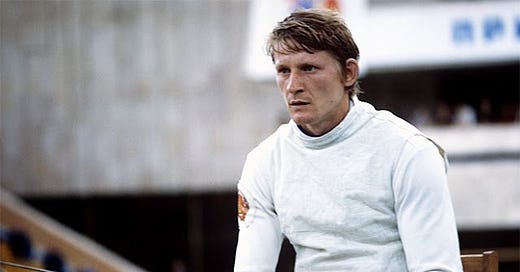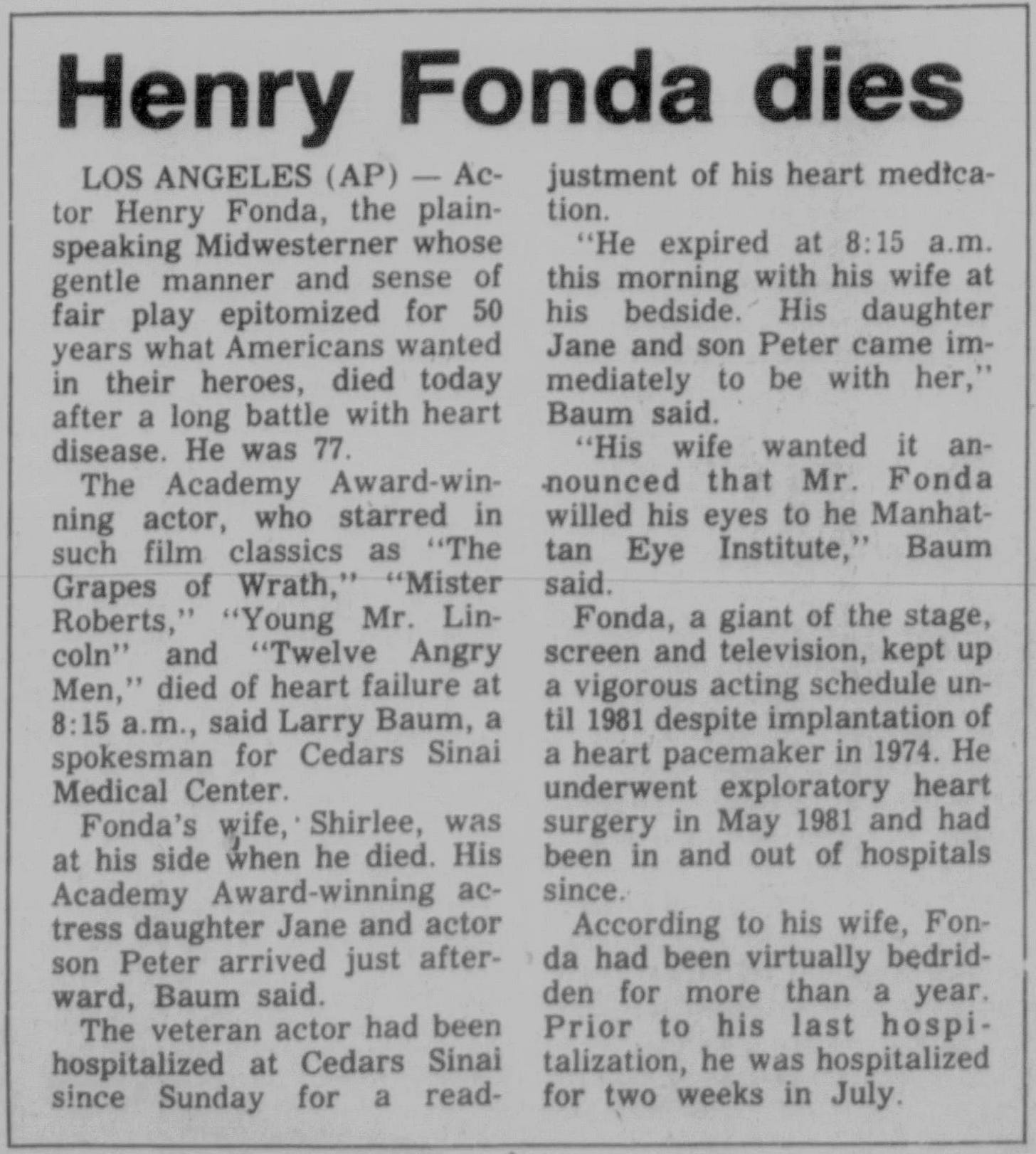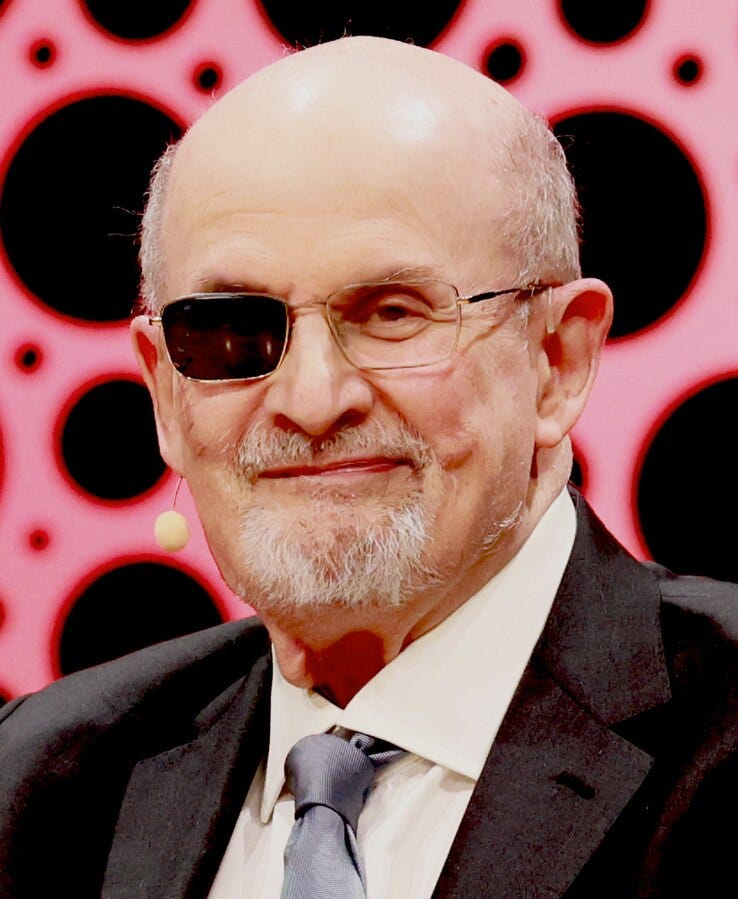The fencing competitions at the 2024 Summer Olympics in Paris this week may trigger the memory of Ukrainian fencing champion Vladimir Smirnov.
At age 26, Smirnov won the gold medal in individual men's foil at the 1980 Summer Olympics, a silver medal in foil team, and a bronze medal in épée team.
Two years later, he was ranked #1 in the world when he faced West German Matthias Behr, ranked #2, on July 19 at the 1982 World Fencing Championships in Rome, Italy. Their bout began. Smirnov and Behr simultaneously launched an assault. Behr's foil blade broke during the action and its jagged edge pierced through the mesh of Smirnov's fencing mask, penetrating his left eye socket, and into his brain’s frontal lobe.
His heart was still beating, but he was comatose, on life support, and not responding to treatment. The hospital said he had no brain reflexes.
The Soviet team won the tournament, dedicating their triumph to Smirnov. Extensive changes were made in fencing, and fencing safety.
Behr was inconsolable and took a break from fencing before coming back to win medals in World Championships and two silver Olympic medals in the 1984 and 1988 Summer Olympics.
Two weeks and a day later, on August 12, 1982, veteran American actor Henry Fonda, whose film career spanned forty-six years, died from heart disease in Los Angeles. He had just won the Oscar for Best Actor for his lead role in On Golden Pond in March.
It was announced in Fonda’s obit that he had donated his eyes to the Manhattan Eye Institute. Healthy corneas can be extracted from the eyes of deceased individuals within six hours after death and can be kept in a particular solution for up to three days before a transplant operation in an effort to restore a patient’s sight. More than 47,000 corneal transplants are performed each year.
On August 12, 2022, forty years to the day after Fonda’s death, British author Salman Rushdie was attacked and stabbed multiple times while preparing to give a lecture at the Chautauqua Institution in New York. Rushdie had faced threats and fatwas for his 1988 novel The Satanic Verses, which was considered blasphemous by some Muslims. The motive for the attack is believed to be linked to the fatwa issued by Iran's Ayatollah Khomeini in 1989, which called for Rushdie's death. His attacker pleaded not guilty to attempted murder and assault charges.
Rushdie sustained serious injuries, including severed nerves, a damaged liver, and the loss of his right eye. and was airlifted to a nearby hospital. In his book about the attack Knife: Meditations After An Attempted Murder, published April 16, 2024, he writes:
“There was the knife in the eye. That was the cruelest blow, and it was a deep wound. The blade went in all the way to the optic nerve, which meant there would be no possibility of saving the vision. It was gone.”
He describes his eye as bulging out of its socket and hanging down on his face like a large soft-boiled egg, writing “the swelling was so bad that the doctors didn't even know, in those first days, if I still had an eyelid. (I did.)"
Rushdie now wears glasses with a blacked-out lens.
Un Chien Andalou is a 1929 French avant-garde short film directed by Spanish filmmaker Luis Buñuel and written by Buñuel and Spanish surrealist artist Salvador Dalí. Full of symbolism and a dreamlike atmosphere (Bunuel and Dali were both inspired by dreams they had), the film depicts a series of bizarre and disjointed scenes, including a man dragging a piano with a dead donkey on top of it, a group of people eating at a table while ants swarm over their food, and a man slitting a woman's eyeball with a razor blade.
The startling effect was achieved by editing and, according to claims by Buñuel, using intense lighting and the eye of a dead calf.
He intended for the film to disgust and revolt his audience, but found the effete class loved it, which irritated the filmmaker to no end.
In Stanley Kubrick’s 1971 film A Clockwork Orange, based on the novel by Anthony Burgess, there is a scene where the film’s lead character Alex DeLarge, played by Malcolm McDowell, undergoes a form of aversion therapy where he is bound to a chair with his eyes clamped open, forcing him to watch ultraviolent and sexual films. Some believe this scene was influenced by Un Chien Andalou as Kubrick was said to have been a fan of Buñuel’s films.
Buñuel himself said of the film, “A Clockwork Orange is my current favorite. I was predisposed against the film. After seeing it, I realized it is only a movie about what the modern world really means.”
In a 2019 interview for The Guardian, McDowell said of the making of the scene:
“When we shot it, the lid-locks kept sliding off my eyelids and scratching my cornea. When the anesthetic wore off, I was in such pain I was banging my head against a wall.”
Indeed, the eyes are fragile, delicate, vital parts of the body, and the skin around them is thin and sensitive. Eyelid skin contains less collagen and has fewer sebaceous glands than other areas of the skin. Religious texts talk of the importance and susceptibility of the eyes. Their nature and vulnerability, then, make for an easy target. Simply reading about examples of eye injuries, including a corneal scratch, are ghastly and not for the squeamish.
Salman Rushdie’s attacker was indicted and charged just last week with terrorism offenses.
Matthias Behr’s story is worth exploring as it becomes an incredibly moving tale of not only redemption and reconciliation but of refuge from the Russo-Ukrainian War.
Smirnov died from his injuries nine days after the Olympic fencing accident on July 28, 1982.
Luis Buñuel died one year and a day later on July 29, 1983.
Un Chien Andalou enters the public domain on January 1, 2025.
Someone could be out there watching it right now with Henry Fonda’s eyes.









I will never forget the eye scene in Un Chien Andalou. I watched it in one of my classes my first semester at film school and it really stayed with me. I didn't realize Salvador Dali had a hand in it. This was a great piece.